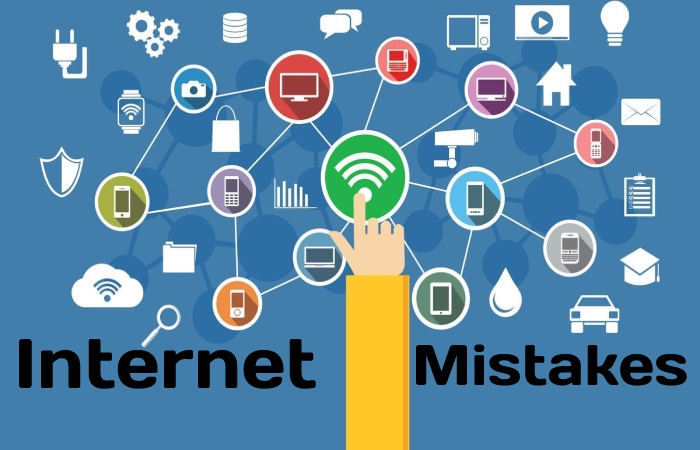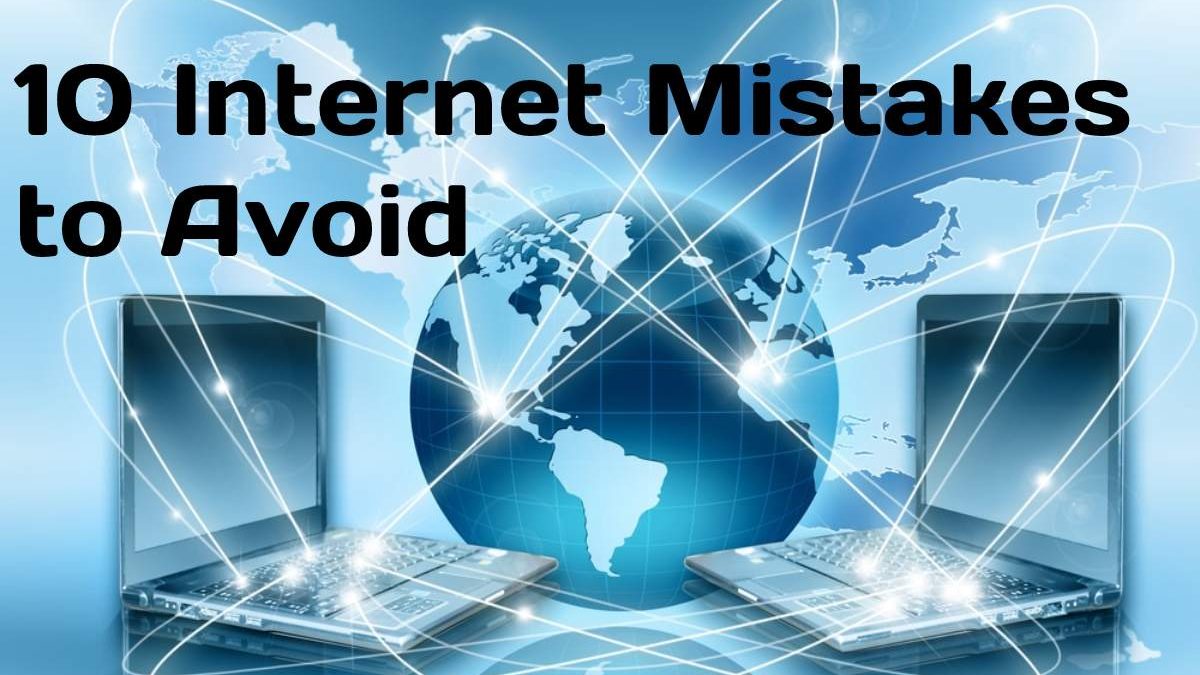10 Security Mistakes to Avoid on the Internet
We will give tips to avoid common mistakes on the Internet that put our security at risk. The Internet is a platform that offers us a wide range of possibilities. We have at our disposal many tools, pages, services, and options for our day-to-day. Now, our security can reduce if we do not take the appropriate measures and make mistakes. We are going to mention 10 of the most important for this that is going to begin.

1. Clicking on suspicious links
One of the most common mistakes when browsing the Internet is clicking on links that may be suspicious. It is through a simple link one of the most used ways by hackers to deploy their threats.
It is energetic that we always remember the importance of knowing the page we are on. We must not click on links that could be a threat. We must carefully analyse the site we are on and the URL that redirects
2. Click on unknown links
The curiosity we can pay dearly. Hackers are specialists in sending flashy offers that offer great discounts and free products. Generally, these web addresses take us to sites with viruses and where our security can compromise.
3. Reuse passwords
It is a significant bug. Many users reuse passwords across multiple accounts. Ideally, we use a unique password for each record we have. It is an error that can put our security at risk.
For a key to be vital, it must have letters (upper and lower case), numbers, and other special symbols. So, it must be random and contain no words or figures that can relate to us.
4. Outdated software
A good shield from promiscuous attacks is our software. When we do not renew the operating system of our cell phone or computer, we expose ourselves to not being up to date in protection, and the latest generation or more sophisticated malware can damage our devices.
5. Not correctly securing the router
We must adequately connect the router. It means using proper encryption (avoid obsolete ones like WEP), as well as creating passwords that are strong and complex. Also, keep in mind that it is essential to change the factory settings to avoid taking risks.
6. Download from unofficial sources
Another common mistake is downloading from sources that are not official. Downloading software from the Internet can pose a significant risk to our security. Therefore, we could compromise the reliability of our devices if we install software from unofficial sites that have been unkindly modified.
It is undoubtedly one of the most communal mistakes when browsing the Internet on any platform. So we should always install legitimate software.
7. Browse the web without security tools
When we browse the Internet, and what device or operating system we use, we must have good antivirus and security tools to protect us. It is a significant mistake to browse without being adequately protected, as we could fall victim to various attacks.
8. Not updating the software correctly
Something similar happens with updates. We must always have the latest versions installed on our computers. It is something that must apply both to the operating system itself and to the different applications that we use.
Therefore, sometimes exposures arise that are exploited by hackers to carry out their attacks. It is the manufacturers and developers themselves who release patches and security updates. We always need to have them installed.
9. Trust any Wi-Fi network
Another critical flaw in our Internet security is trusting any Wi-Fi network. So they may have been maliciously modifying to steal our data and put our security at risk. It is dynamic that we consider the risk of accessing public and open wireless networks.
10. Do not create backups frequently
So it is advisable to develop blockages continually. A significant flaw when browsing the web and using connected devices is not creating backups. So, there are threats like ransomware that can seriously compromise our files. Creating copies regularly is essential.
How to avoid it?
The recommendations are simple. The first thing is to avoid falling into these mistakes. It is also essential to check the origin of the messages we receive, the sender, and the spelling and avoid downloading attachments, in addition to never revealing your password.
Conclusion
In short, these are some essential tips to improve network security for the coming year. So we have seen a series of common mistakes that users make and that we should avoid.
Related posts
Featured Posts
SEO Books – 10 Best SEO Books
A significant first step is to look for the best SEO books to enter the world of SEO if you…
Work From Home – Advantages, Disadvantages, and More
Working from home allows you to manage both home and work at the same time. Working from home is especially…



